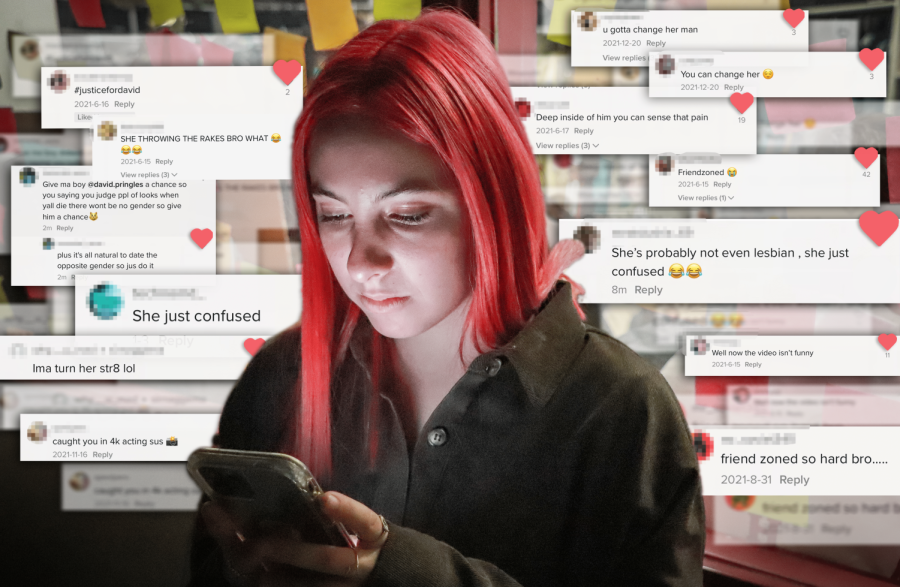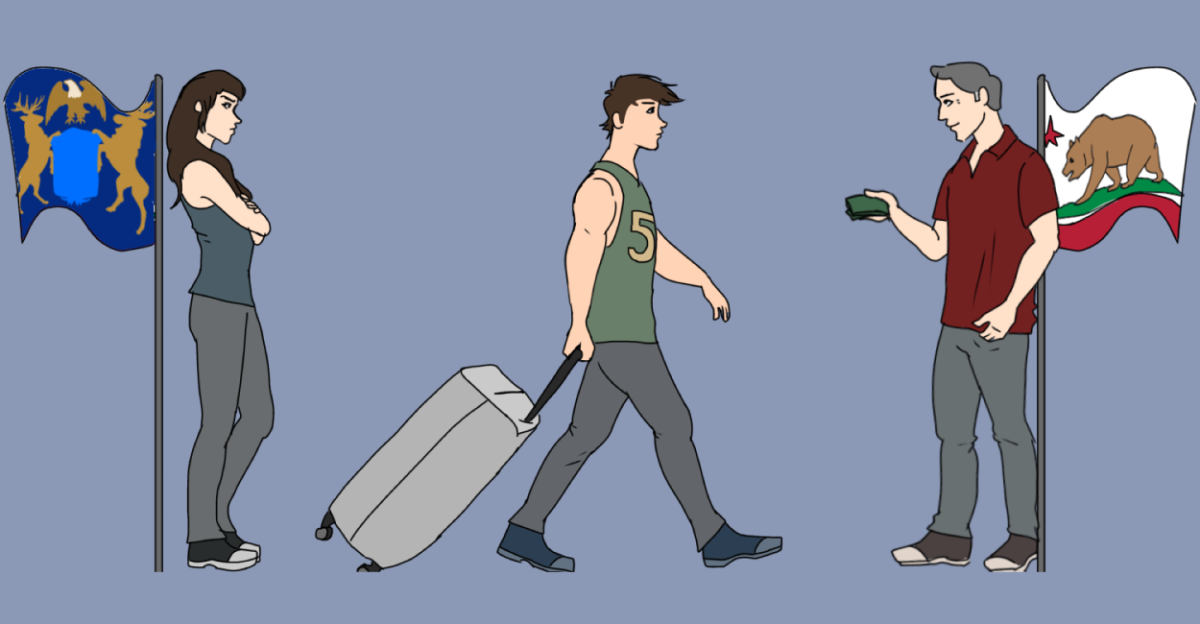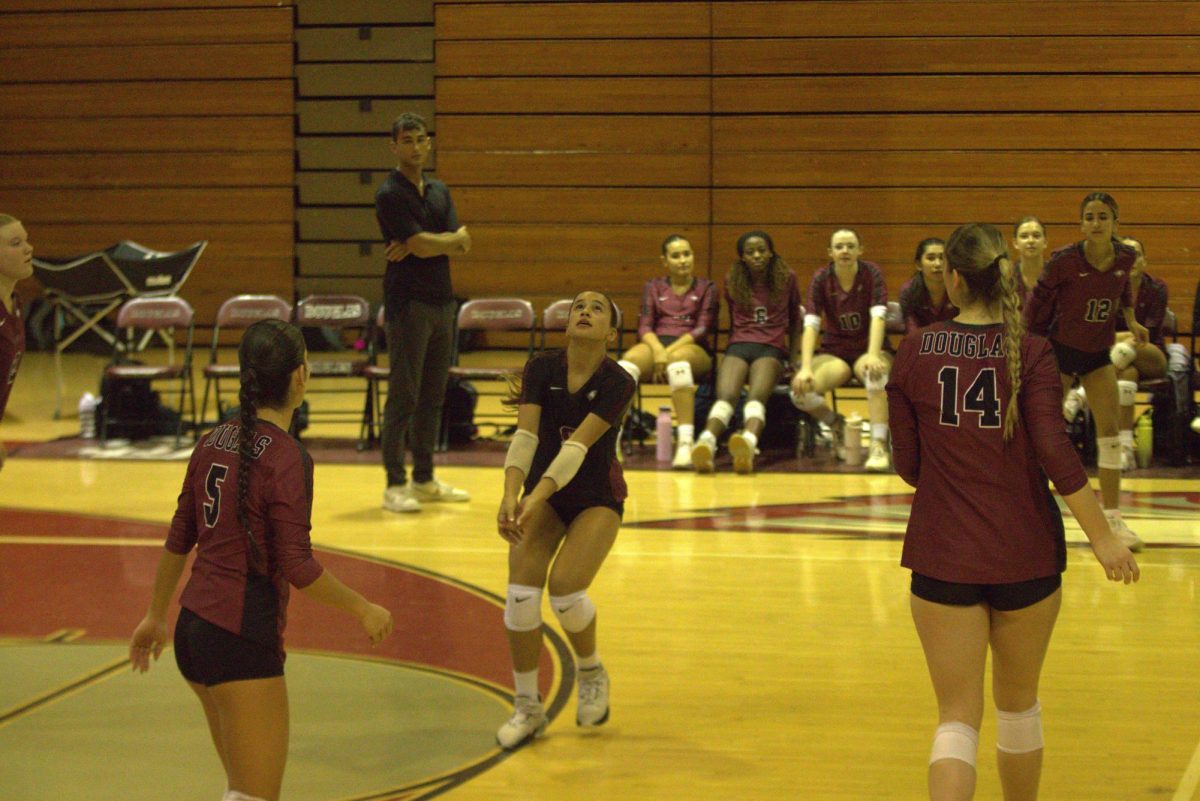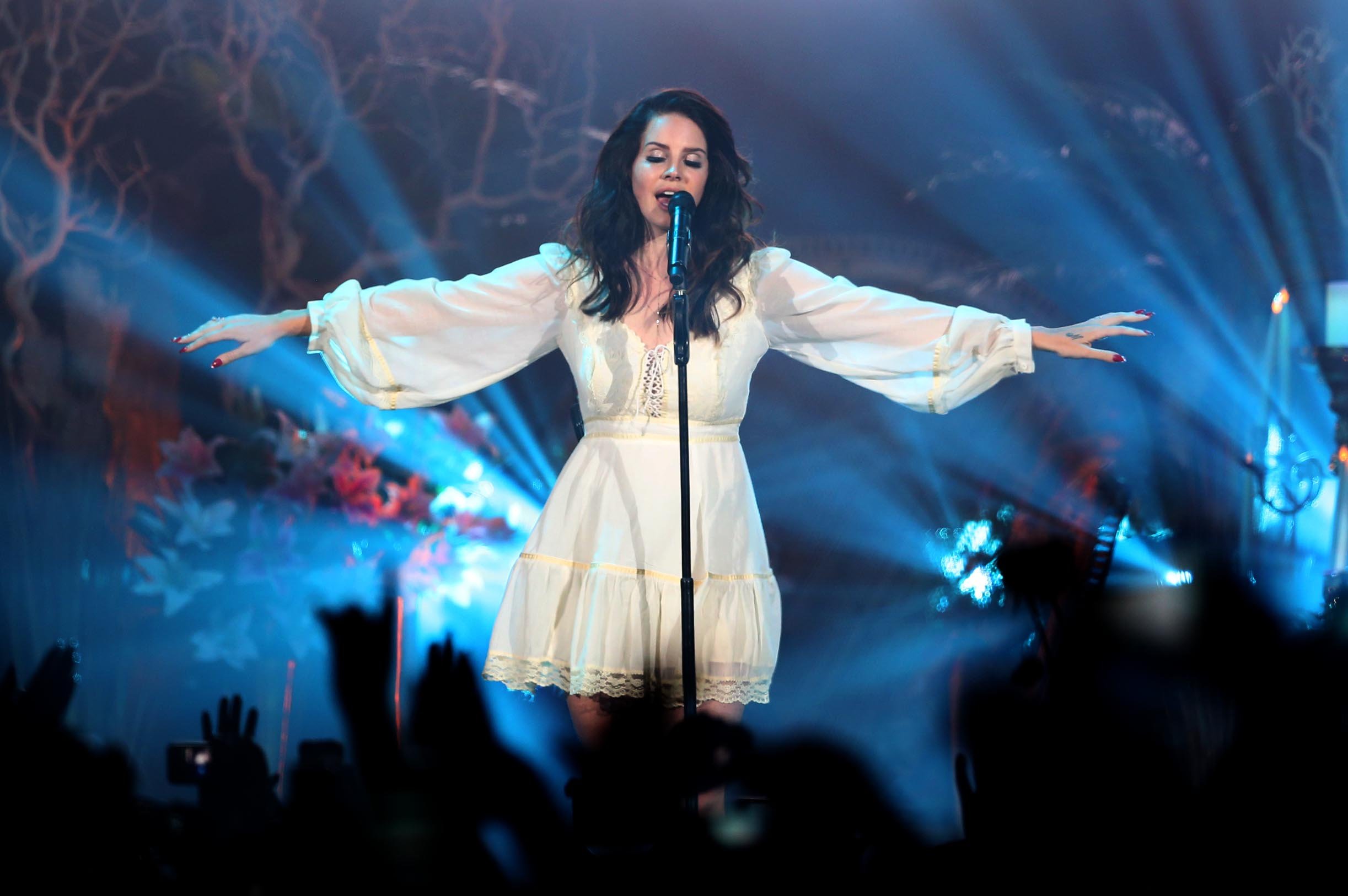Volatility of TikTok videos leaves student to deal with online harassment
Julia Landy and Mariajose Vera
Senior Abby Marton goes viral in a TikTok video, which causes her to receive a lot of hate comments.
February 22, 2022
Rolling out of bed on the morning of June 7, senior Abby Marton checked her phone as she does every other morning; she looked at her text messages, emails and then at the popular social media platform TikTok. To both her excitement and dread, she had become an online sensation overnight, garnering to date 13.3 million views and 3.5 million likes from a TikTok that her friend, David Prengler, posted with no intention of going viral.
The subject of the video is Prengler’s apparent affection for Marton, and how a relationship between them was being prevented by Marton’s sexual orientation as a lesbian. The video was posted as a joke.
Regardless, the video went viral. It managed to net about 2.7 million views when it was reposted on Dec. 16, 2021, and 122.9 thousand views when a follow-up video stating that Marton was “unfortunately still a lesbian” was posted on Dec. 18, 2021. The effects of the 15-second clip have been major, especially on Marton’s end, as she had to close her comment section due to the amount of online harassment she received because of the video.
“I had a lot of people online tell me that I was just choosing my sexuality for attention as well people telling me it was just a phase and that I should give [David Prengler] a chance. I had to delete and disable many of my comments,” Marton said.
Harassment is a known risk anyone takes when they post anything on the internet. At any moment, an idea can be seen by the wrong people, taken out of context or judged unfavorably, resulting in a wave of criticism from strangers online. Prengler’s post was not spared from this phenomenon, and he has received criticism from many in his comment section for making Marton uncomfortable, necessitating a follow-up video.
“Some people in the comments got mad because they thought [Prengler] was making me uncomfortable by claiming that he likes me, but we made another video clarifying that he wasn’t and that it was just a joke,” Marton said.
As a result of the video, Marton has received an influx of people in her comments section, at school and in person questioning her sexuality. She reported that people would come up to her or her friends and attempt to decipher whether or not she was actually gay.
“The entire situation made me feel invalidated, but also extremely frustrated that these ways of thinking are still so prevalent,” Marton said. “Since I’m young and tend to dress relatively feminine, I’ve found that people who don’t know me often dismiss or reject my sexuality and ask me things like ‘Are you really sure?’ or ‘How do you know it’s not just a phase?’ Since comments like those don’t usually come from my immediate circle, the TikTok
has really opened my eyes to just how prevalent homophobia is outside of our small Parkland bubble.”
The individuals that were attempting to judge whether or not Marton was gay were either curious or attempting to play matchmaker, both of which made her uncomfortable. Marton consented to having the TikTok video posted publicly, but she did not consent to the frequent questioning of her sexual preference.
What happened to Marton opens an interesting discussion on the snowball effect the internet has on people’s lives. With just one post that was not even from her own account, Marton was subjected to defending her identity from a group of individuals that had not understood that the clip was a joke. With just one post, a key part of her life was put under intense scrutiny and a very personal portion of her life was forced out repeatedly. Luckily, Marton came out of the situation whole and safe, but her circumstance still goes to show that even a relatively harmless joke on the internet can cause unintended harm.
“I’d be lying if I said I don’t have a certain amount of resentment towards the [individuals questioning my sexual identity], but I also know that their misconceptions are a product of their own environment and the way they have been raised to think,” Marton said. “A lot of people may have been taught that being gay is wrong from a religious standpoint, and it’s hard to blame them for their upbringing. For that reason, I don’t get mad at the miseducated comments and instead aim to inform them in my responses.”
This story was originally published in the February 2022 Eagle Eye print edition.










